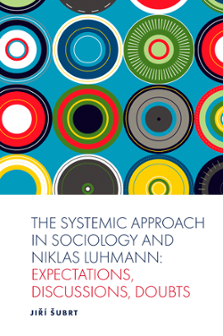
Index
The Systemic Approach in Sociology and Niklas Luhmann: Expectations, Discussions, Doubts
ISBN: 978-1-83909-032-5, eISBN: 978-1-83909-029-5
Publication date: 29 April 2020
Citation
Šubrt, J. (2020), "Index", The Systemic Approach in Sociology and Niklas Luhmann: Expectations, Discussions, Doubts, Emerald Publishing Limited, Leeds, pp. 129-133. https://doi.org/10.1108/978-1-83909-029-520201008
Publisher
:Emerald Publishing Limited
Copyright © 2020 Jiří Šubrt
INDEX
Index
Note: Page numbers followed by “n” indicate notes.
- Prelims
- Chapter 1: Introduction: Dream or Myth?
- Chapter 2: The Dream of a United Conception of Science
- Chapter 3: What Is the Right Starting Point for Sociological Thought?
- Chapter 4: A Dream of Integration of Theory and Society (Parsons)
- Chapter 5: The Dream of the Sociological Super-theory (Luhmann)
- Chapter 6: Reflections on Possibilities of Application of System Approach at Macrosocial Level
- Bibliography
- Index